Composting Chicken Manure: How to Boost Nitrogen Content
- February 29, 2024
- 0 comment
In the realm of organic gardening, enriching your soil with compost is akin to serving a gourmet meal to your plants. Among the various types of compost, chicken manure compost stands out as a superfood, delivering a potent mix of nutrients essential for plant growth.
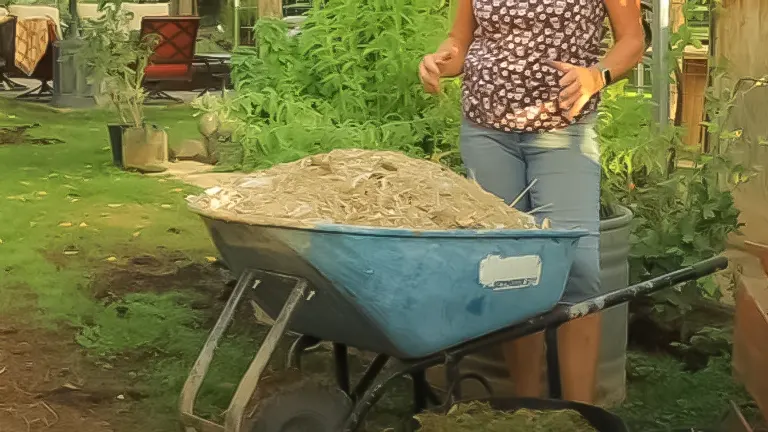
This guide dives deep into the art and science of creating high-quality chicken manure compost, providing you with a step-by-step approach to harnessing this “Best Nitrogen Manure Source” for your garden.
List of Transforming Your Garden In A Chicken Manure Compost:
- Collection and Preparation
- Building Your Compost Pile
- Managing Moisture and Aeration
- Monitoring Temperature
- Maturation
- Application
Why Chicken Manure Compost?
Chicken manure is renowned for its high nitrogen content, essential for leafy growth, alongside significant levels of phosphorus and potassium which promote root development and flower growth. Moreover, it contains calcium, enriching the soil and improving plant health.
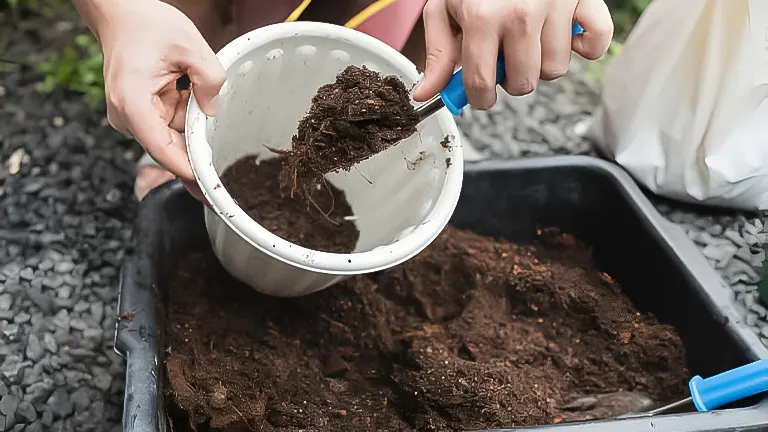
By converting raw chicken manure into compost, you mitigate the risk of “burning” plants with excessive nitrogen and ensure the manure’s nutrients are in an accessible form for your garden.
6 Steps For Transforming Your Garden In A Chicken Manure Compost
Step 1: Collection and Preparation
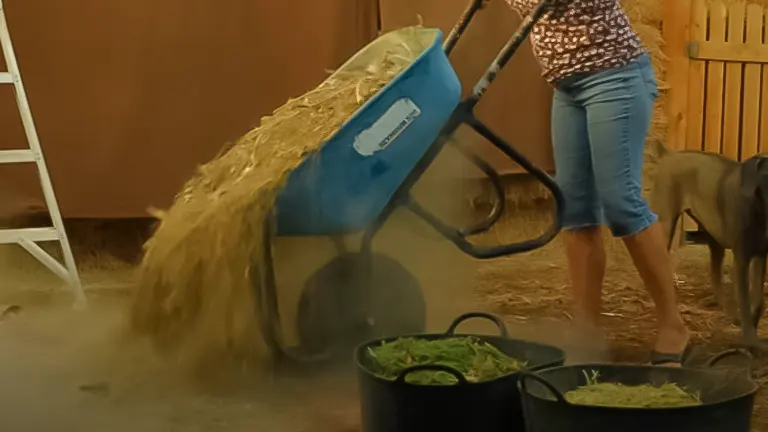
Begin by gathering chicken manure and bedding material, typically straw or sawdust, from your coop. This mixture already has a balanced carbon-to-nitrogen ratio conducive to composting. Ensure the manure is fresh to preserve the nitrogen content, which can evaporate if left exposed.
Step 2: Building Your Compost Pile
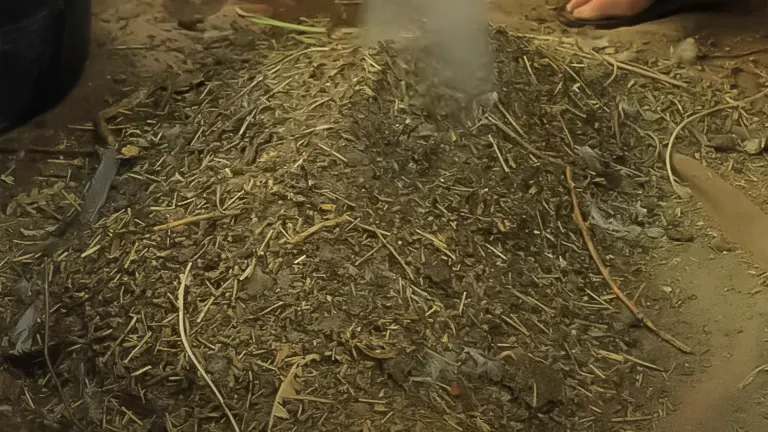
Select a shaded spot for your compost pile or bin to protect it from drying out too quickly. A balance of green (nitrogen-rich) and brown (carbon-rich) materials is crucial. Layer your chicken manure with carbon sources like dry leaves, straw, or shredded paper to encourage aerobic decomposition, which is faster and less odorous than anaerobic processes.
Step 3: Managing Moisture and Aeration
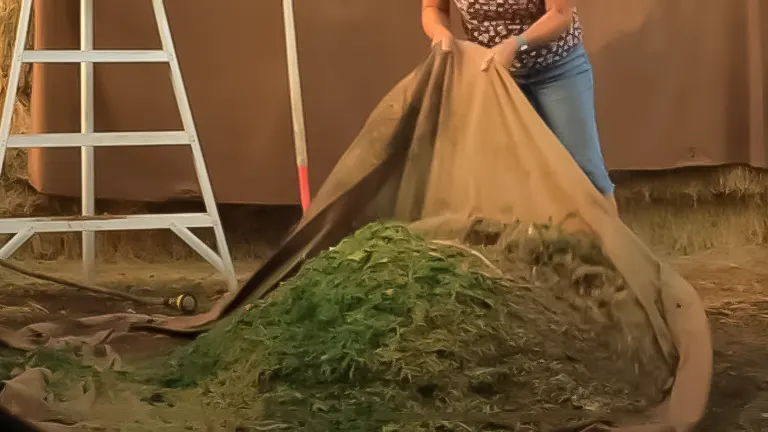
Moisture is pivotal in the composting process, with the ideal consistency resembling a wrung-out sponge. Too dry, and the microbial activity slows down; too wet, and you risk creating an anaerobic environment that smells and decomposes slowly. Turn your pile regularly to introduce air, which fuels the composting microbes and speeds up the process.
Step 4: Monitoring Temperature
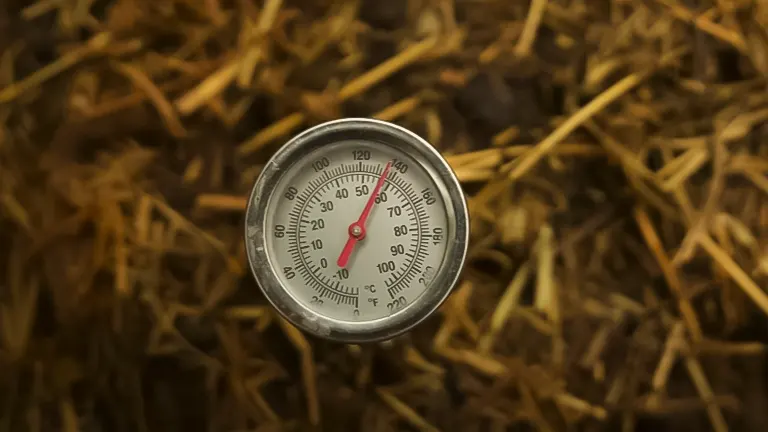
A compost thermometer is an invaluable tool for this step. The pile should heat up to between 130-160°F. This temperature range signifies active decomposition and is high enough to kill off pathogens and weed seeds present in the manure. If the pile cools down, turn it to reintroduce heat and moisture evenly.
Step 5: Maturation
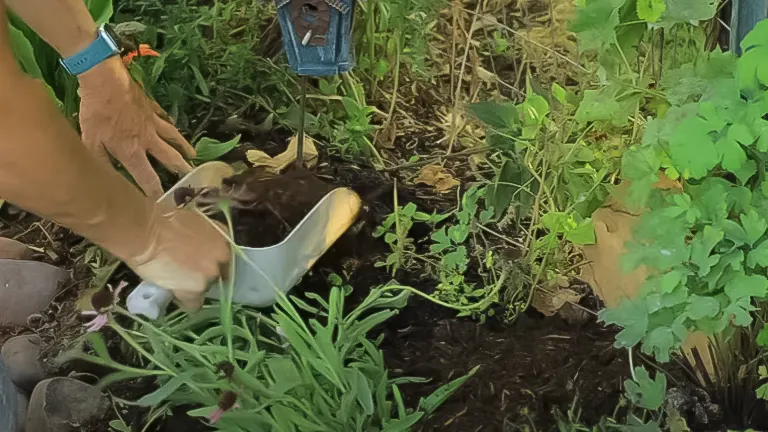
Composting is a waiting game. Over several weeks to months, the pile will gradually transform into dark, crumbly compost, rich in nutrients and devoid of any original manure smell. This transformation indicates that the compost is mature and ready to nourish your garden.
Step 6: Application
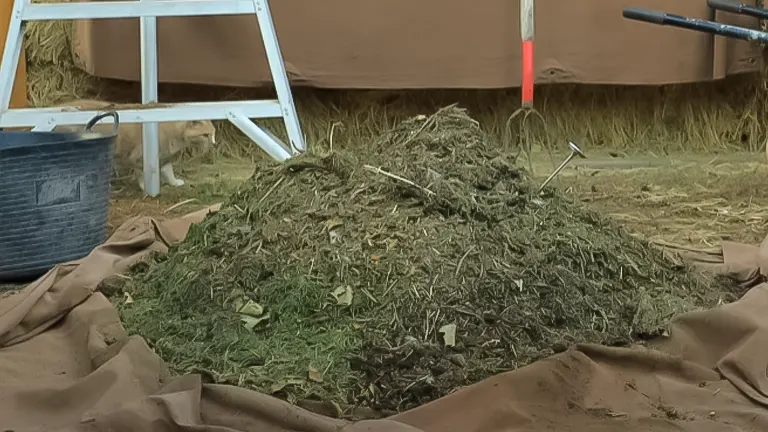
Use your chicken manure compost sparingly; its nutrient-rich profile means a little goes a long way. It’s perfect for mixing into the soil at planting time or top-dressing existing beds. Remember, the goal is to enrich the soil gradually, promoting robust, healthy plant growth.
Benefits and Considerations
Utilizing chicken manure compost offers multiple benefits, including improved soil structure, enhanced moisture retention, and a boost in beneficial microbial activity. However, it’s important to ensure the compost is fully matured to avoid nitrogen burn or the spread of pathogens.
Challenges and Solutions
The primary challenge in making chicken manure compost is managing the balance of materials, moisture, and air. An overly wet or dense pile can become anaerobic, slowing down the process and producing unpleasant odors. Regular turning and monitoring help maintain optimal conditions.
Pros and Cons
Pros
- Rich Nutrient Content: The high levels of nitrogen, phosphorus, and potassium are ideal for boosting plant growth and soil fertility.
- Cost-Effective: Utilizing chicken manure for compost is an economical way to enrich your garden soil without the need for commercial fertilizers.
- Environmental Benefits: Composting chicken manure reduces waste and contributes to a more sustainable gardening practice.
Cons
- Initial Effort: The process requires a bit of labor, especially in turning and maintaining the compost pile.
- Odor Management: Without proper aeration and moisture, the compost pile can get smelly.
- Pathogen Risk: If not composted at the right temperatures, there’s a risk of retaining harmful pathogens in the compost.
Related Articles:
- Best Bedding For Chickens
- Best Safe Chicken Coop Heater
- 8×8 Chicken Coop Plans
- Turning a Shed Into a Chicken Coop
- How to Make a Chicken Coop Out of Pallets
- Best Sand for Chicken Coop
- How To Insulate a Chicken Coop
- How To Heat a Chicken Coop
- How To Keep Water from Freezing in Chicken Coop
- How to Build a Chicken Coop
- How To Build Chicken Nesting Boxes
- How to Raise Happy and Healthy Chickens in Your Backyard
- When Can Chicks Go Outside? Timing and Tips for a Smooth Transition
- 12 Reasons why Ducks are Better than Chickens
- Best Automatic Chicken Coop Doors 2024: Expert Reviews & Buyer’s Guide
- Best Fans for Chicken Coop 2024: Effective Cooling Solutions Reviewed
- Designing the Perfect Low-Maintenance Chicken Coop: Your Ultimate Guide
- Transforming Chicken Feed: My DIY Black Soldier Fly Bin Experience
- Backyard Chickens: A Step-by-Step Guide for First-Timers
Comparing Chicken Manure Compost to Other Organic Fertilizers
While chicken manure compost is highly beneficial, it’s one of many options in an organic gardener’s toolkit. Comparatively, it’s richer in nitrogen than most animal manures but requires careful handling and composting to unlock its full potential safely. For gardeners seeking immediate nutrient application, commercially prepared organic fertilizers might be a faster, albeit more expensive, alternative.
Final Conclusion
Through my years of gardening, I’ve learned that chicken manure compost is unparalleled in enriching soil and supporting plant growth. The effort to convert what is essentially waste into a highly beneficial resource is not only rewarding but also aligns with sustainable gardening practices. Whether you’re new to composting or looking to improve your technique, I hope my experience and these guidelines inspire you to explore the wonders of chicken manure compost. Happy composting!
Frequently Asked Questions
- What makes chicken manure compost so beneficial for my garden?
Chicken manure compost is rich in nitrogen, phosphorus, and potassium, essential nutrients that promote vigorous plant growth and soil health. It also improves soil structure, enhances moisture retention, and encourages beneficial microbial activity. - Can fresh chicken manure be applied directly to my garden?
No, fresh chicken manure is too “hot,” meaning it’s high in nitrogen and can burn plants if applied directly. It needs to be composted first to break down into a more plant-friendly form. - How long does it take to compost chicken manure?
The composting process can vary but typically takes about 3 to 6 months. Factors such as temperature, moisture, and turning frequency can affect the duration. - Do I need to add anything else to the chicken manure when composting?
Yes, for optimal composting, it’s beneficial to add carbon-rich materials like straw, leaves, or wood chips to balance the nitrogen in chicken manure and ensure a good carbon to nitrogen ratio. - How often should I turn the chicken manure compost?
It’s recommended to turn the compost every 2-4 weeks to aerate it, which helps speed up the decomposition process and prevents odor and pest problems. - How can I tell when the chicken manure compost is ready to use?
The compost is ready when it’s dark, crumbly, and has an earthy smell. It should no longer heat up after turning, indicating that the composting process is complete. - Is there a risk of pathogens in chicken manure compost?
Proper composting at high temperatures (between 145-155°F) for a sustained period can kill most pathogens. However, it’s always good practice to wash hands after handling compost and avoid using it on crops meant for raw consumption close to harvest time. - How should chicken manure compost be stored if not used immediately?
Store it in a dry, covered area to prevent it from getting too wet or dry. Ensure it’s accessible for turning if you plan to use it later, as the composting process may continue. - Can chicken manure compost be used for all types of plants?
Yes, it’s generally beneficial for all types of plants, including vegetables, flowers, and trees. However, due to its rich nature, it should be used sparingly, especially around young plants and seedlings. - What are the environmental benefits of using chicken manure compost?
By composting chicken manure, you’re recycling waste into a valuable resource, reducing reliance on chemical fertilizers, and contributing to a healthier, more sustainable garden ecosystem.
We’re excited to hear from you! Jump into the comments section below to recount your own experiences and wisdom in crafting chicken manure compost. Sharing your journey and advice can significantly benefit fellow gardeners in harnessing the power of this nutrient-dense manure. Together, let’s empower each other to make well-informed choices and nurture a flourishing gardening community!

Edward Smith
Forestry AuthorWoodworking is about more than crafting; it's a harmonious connection with nature, mastering tools, and preserving our environment. I'm here to share my knowledge and experiences with you, forging a future where we can embrace wood's beauty and utility while safeguarding our forests' health and diversity.












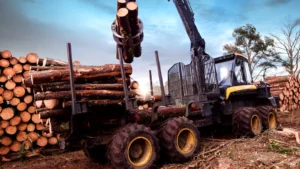
Leave your comment